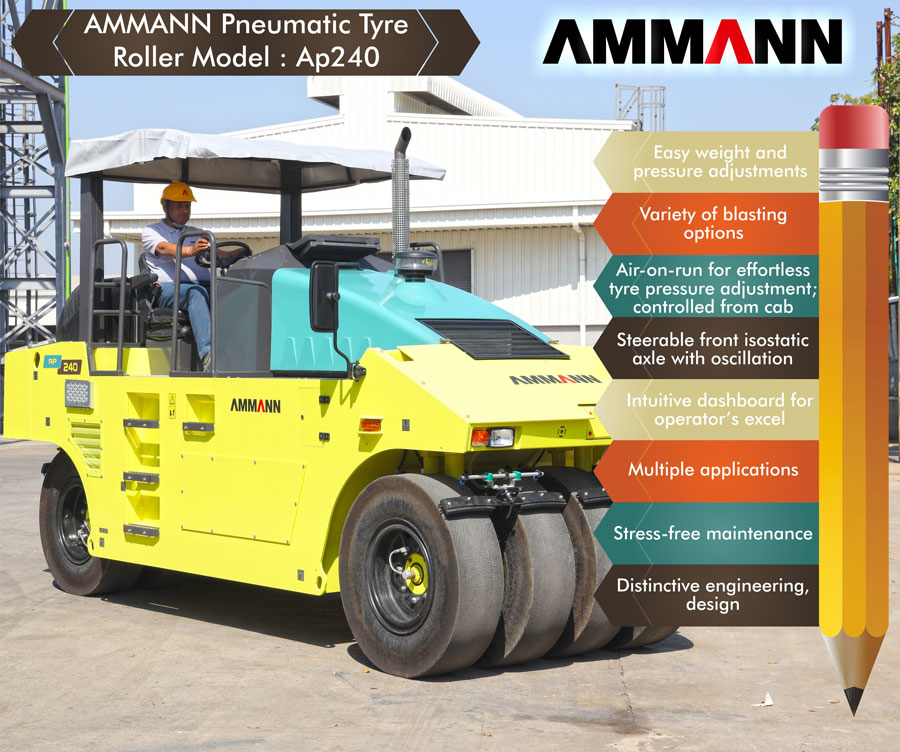Pneumatic Rollers provide contractors with a better base before paving, achieve a better density or compaction and improve the look of the finished product. Pneumatic rollers have become more popular with stiffer mixes since it can help you achieve compaction density. These types of rollers consist of tyres that provide better static penetration into the materials. The weight of the machines and air pressure of the tires can be adjusted to meet the specific pressure desired on a particular job. In this regard, Ammann India Pvt Ltd is providing world-class products to meet your project specification work. Ammann’s Pneumatic Tyre Roller Model: AP240 is a good fit for a diverse job site.
The adoption of Pneumatic Roller particularly in the construction of roads is very necessary to avoid timely road damages, potholes, road breakage as a result of poor construction of the roads. Ammann’s Pneumatic Tyre Roller Model: AP240 is fulfilling these needs. Some of its standout features are given below.
- A ballasting range of 9 tonnes to 24 tonnes
- Comes with an Air-on-run system, which the operator uses to adjust tyre pressure without ever leaving the cab.
- The optional Ammann Traction Control (ATC) boosts productivity on tough terrain. The proven hydrodynamic propulsion system ensures efficiency. Quality Ammann components and engineering enable reliability and long life.
- Steerable front isostatic axle with oscillation
- Tyre widths and arrangement for consistent coverage and even weight distribution
- Turbo-aspirated Cummins diesel engine Rear drive axle
- Rigid frame
- 2 working stations
- Intuitive control and handling
- Exceptional operator visibility
- Spacious, comfortable cab
- Easy access to service points, drain ports and filters
- Air-on-run for effortless tyre pressure adjustment; controlled from cab
- Easy-to-adjust ballast
- Concrete ballast of 2400 kg
- Solid steel ballast of 6000 kg
- Additional ballasting space of 3 m3 in frame
Pneumatic Tyre Roller Application areas;
- Medium and large job sites
- Transport construction (municipal and town roads, motorways, airfields)
- Building construction (houses and industrial zones)
- Asphalt mixtures up to 120 mm (after compaction)
- Hydraulically consolidated mixtures up to 150 mm
- Loam and clay soils up to 150 mm
- Mixed soils up to 200 mm
- Sand and gravel materials up to 250 mm





